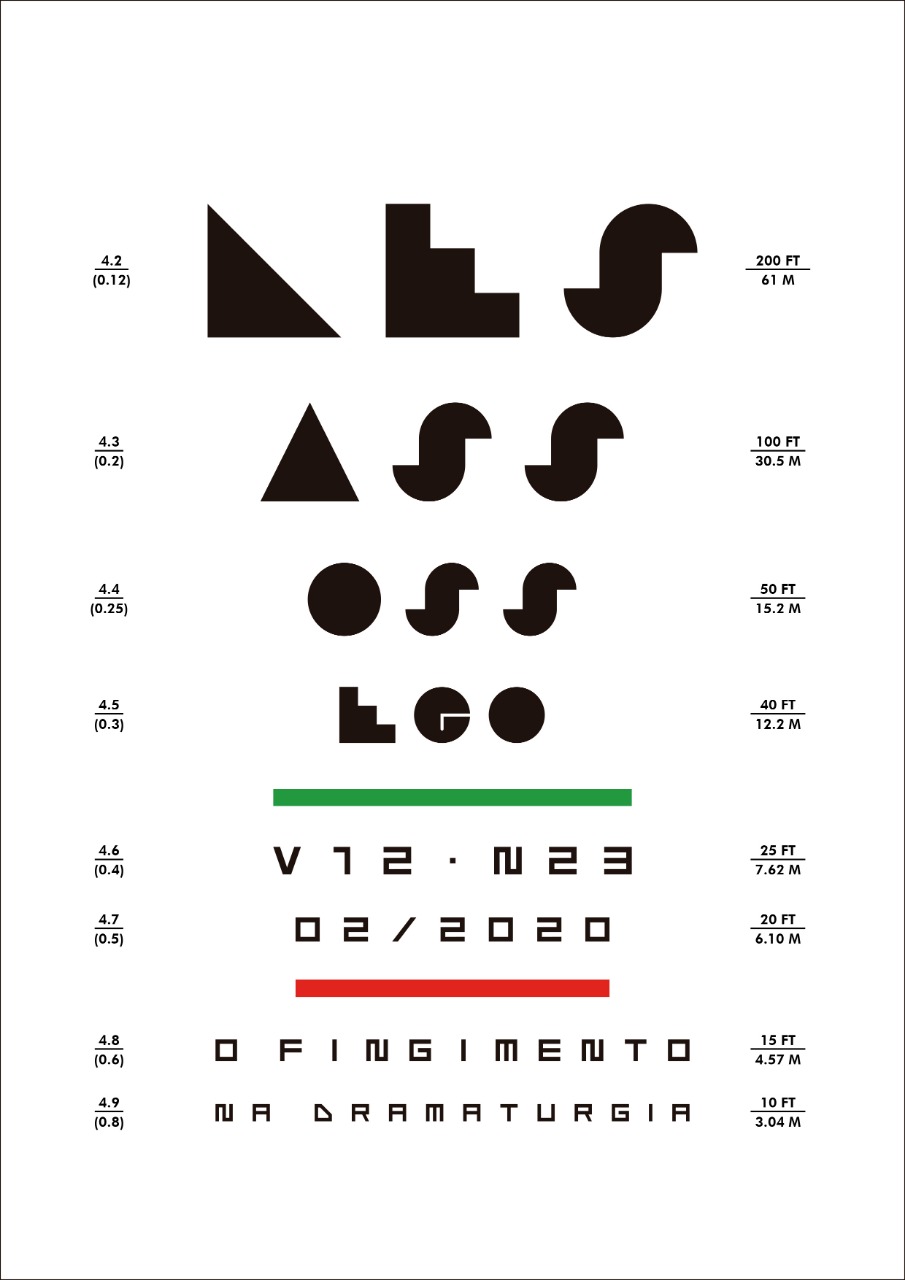A car, burnt-out, on the roadside: the experiment of a theatre writing laboratory
DOI:
https://doi.org/10.11606/issn.2175-3180.v12i23p166-184Keywords:
Writing for theatre, Writing laboratory, Portuguese dramaturgy, Crisis of dramaAbstract
This article reflects about the Theatre Writing Laboratory, promoted by the National Theatre D. Maria II (Lisbon), which I coordinated from September 2015 to September 2019. In these four years, twenty-three new playwrights wrote twenty-three original plays. The project is part of a broader program to support emerging dramaturgies and to encourage the new Portuguese dramaturgy, consisting, in this case, in the approach of young dramatic authors to processes of sharing, experimentation and collaboration that can challenge, influence and stimulate the original writing of a text for theatre. In the first edition (2015/16) we walked around “A state of permanent exception”, under the aegis of Terry Eagleton (2003) and the idea that contemporary dramaturgy has no choice but to account for the state of war - a state of permanent exception - between individuals and institutions of power. In the second edition (2016/17), we questioned “The politics of everything”, in a gesture of homage to the hundred years of the October Revolution and an inquiry into the contradictions of the 20th century, inspired by the lesson of Alain Badiou (2005). In the third edition (2017/18) we lingered on “The daily life of the common man and other unimportant things”, led by Jean-Pierre Sarrazac's reflection on the poetics of contemporary dramaturgy and his “microepopies of the anonymous”. In the fourth edition (2018/19), we wanted to “Interrupt the real to return to it”, trusting in the possible political gestures that the theatre can understand.
Downloads
References
BADIOU, Alain. Le Siècle. Paris : Éditions du Seuil, 2005.
EAGLETON, Terry. Sweet Violence: The Idea of the Tragic. Oxford: Blackwell Publishing, 2003.
LOURENÇO, Eduardo.“Psicanálise mítica do destino português” in O Labirinto da saudade. Lisboa: Gradiva, 2000.
MATEUS, Osório. “Especificidade do texto dramático”, De Teatro e outras escritas. Lisboa: Quimera, 2002, pp. 105-115.
REBELLO, Luiz Francisco. Breve história do teatro português (5ª ed.). Mem-Martins: Publicações Europa-América, 2000.
SARRAZAC, Jean-Pierre. O Outro diálogo: elementos para uma poética do drama moderno e contemporâneo. Évora: Licorne, 2011.
SARRAZAC, Jean-Pierre. Poétique du Drame Moderne: De Henrik Ibsen à Bernard-Marie Koltès. Paris: Éditions du Seuil, 2012.
Downloads
Published
Issue
Section
License
Copyright (c) 2020 Rui Pina Coelho

This work is licensed under a Creative Commons Attribution-NonCommercial 4.0 International License.
O(s) autor(es) declara(m) automaticamente ao enviar um texto para publicação na revista Desassossego que o trabalho é de sua(s) autoria(s), assumindo total responsabilidade perante a lei nº 9.610, de 19 de fevereiro de 1998, no caso de plágio ou difamação, obrigando-se a responder pela originalidade do trabalho, inclusive por citações, transcrições, uso de nomes de pessoas e lugares, referências histórias e bibliográficas e tudo o mais que tiver sido incorporado ao seu texto, eximindo, desde já a equipe da Revista, bem como os organismos editoriais a ela vinculados de quaisquer prejuízos ou danos.
O(s) autor(s) permanece(m) sendo o(s) detentor(es) dos direitos autorais de seu(s) texto(s), mas autoriza(m) a equipe da Revista Desassossego a revisar, editar e publicar o texto, podendo esta sugerir alterações sempre que necessário.
O autor(s) declara(m) que sobre o seu texto não recai ônus de qualquer espécie, assim como a inexistência de contratos editoriais vigentes que impeçam sua publicação na Revista Desassossego, responsabilizando-se por reivindicações futuras e eventuais perdas e danos. Os originais enviados devem ser inéditos e não devem ser submetidos à outra(s) revista(s) durante o processo de avaliação.
Em casos de coautoria com respectivos orientadores e outros, faz-se necessária uma declaração do coautor autorizando a publicação do texto.
Entende-se, portanto, com o ato de submissão de qualquer material à Revista Desassossego, a plena concordância com estes termos e com as Normas para elaboração e submissão de trabalhos. O não cumprimento desses itens ou o não enquadramento às normas editoriais resultará na recusa do material.


